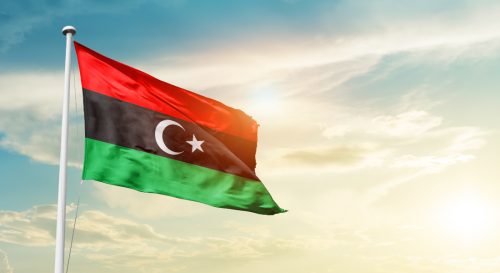
Why prospects look good for trade-related IP rights in the African market
The African Continental Free Trade Area Agreement (AfCFTA) was signed on March 21, 2018, at Kigali, Rwanda, where 44 out of 55 African Union member states appended their assent to a landmark treaty.
As of May 2022, 54 member states have signed the agreement, of which 43 (80%) have deposited their instruments of ratification. This agreement stands as the largest trade agreement to create the world’s largest single market since the creation of the World Trade Organization. The ACFTA aims to unify the African market, boost intra-African trade and therefore foster positive transformations in African economies through clear, transparent, predictable and mutually advantageous rules and protocols, to govern trade in goods and services, competition policy, investment and intellectual property among State Parties.
The agreement also addresses the challenges posed by multiple and overlapping trade regimes to achieve policy coherence, including relations with third parties.
The agreement seeks to promote economic integration, foster intra-African trade, and accelerate the continent's development by raising GDP to up to 52% by 2022 through the elimination of trade tariffs from 90% of goods and enhanced access to commodities, goods and services across the African continent.
As the AfCFTA enters its implementation phase in 2023, one crucial aspect that demands attention is Trade-Related Intellectual Property Rights (TRIPs). In this article, we will explore the prospects and challenges related to TRIPs under the AfCFTA and their potential impact on Africa's economic growth and innovation.
Understanding Trade-Related Intellectual Property Rights
TRIPs encompass a set of legal instruments that govern the protection and enforcement of IP in relation to trade and commerce. The IP rights include patents, trademarks, copyrights, industrial designs, geographical indications, domains and trade secrets, among others. The protections of these IP rights are crucial to promoting innovation, encouraging investment in research and development, and ensuring fair competition in the market.
Analysing the prospects of the implementation of AfCFTA 2023 for TRIPS and related IP innovation strategies
The African Union Theme of the Year 2023, “adopted by the Assembly of Heads of State and Government of the African Union (AU Assembly), focuses on the “Acceleration of AfCFTA Implementation”.
This focus is purported to support and promote the implementation of the AfCFTA Agreement in collaboration with all relevant organs and specialised agencies of the African Union, as well as regional mechanisms and Regional Economic Communities (RECs). The main aim and objective is to accelerate the implementation of the AfCFTA in a way that is advantageous to Africa's population.
In February 2023, 46 Provisional Schedules of Tariff Concession was submitted by member states, including four from the Customs Unions as an effort to expedite the implementation and utilisation of existing operational tools that will foster effective trading under the AfCFTA.
These tools were designed to promote and enhance trade within the African continent under the AfCFTA by eliminating tariffs on 90% of goods and liberalising services trade thus enabling African countries to access new markets and deepen regional integration.
However, there are the effectiveness of the AfCFTA and its impact on TRIPS have been a subject of debate. Some of the challenges are highlighted below.
Harmonisation of IP laws
One of the challenges lies in the varying levels of IP protection and engagement of the AfCFTA by parties to it across African nations. In a 2023 report, only eight of 44 countries have so far started engaging the AfCFTA’s Guided Trade Initiative (GTI), namely Cameroon, Egypt, Ghana, Kenya, Mauritius, Rwanda, Tanzania and Tunisia, with a focus on products such as ceramic tiles, beverages and processed meat products for value chain development.
Harmonising more engagement of these guides and laws under the AfCFTA framework could lead to better protection and enforcement of IP rights, fostering a conducive environment for innovation and investment.
Slowed opportunities for IP expansion and sustainability
In November 2022, African Ministers conveyed at Niamey, Niger, to discuss the accelerated adoption of proposals to facilitate economic “diversification, value addition and structural transformation” which are analogous to trade.
This situation clearly presents two cases. Firstly, since its adoption in 2018/19, AfCFTA has not been able to fully clinch its target of a blooming economic terrain for Africa.
Secondly, this also presents an opportunity for IP knowledge, engagement and expansion in the African territory if the mentioned proposals are fast-tracked and implemented accordingly. However, to be effective, there is a need for clear guidelines and mechanisms to encourage trade diversity without compromising the interests of IP owners.
Conclusion
The implementation of AfCFTA 2023, if effected, holds significant prospects for TRIPS and related IP strategies in Africa such as:
- Boost to innovation: Strengthening IP protection will encourage domestic and foreign investments in research and development. A secure IP environment will provide innovators with the confidence that their creations will be adequately protected, spurring further innovation and technology advancement across various industries.
- Promoting creativity: Strong IP protection will promote creativity and incentivise artistic expressions, leading to the development of different sectors, agro manufacturers, the entertainment industry, creative and artistic agencies, pharmaceutical productions, etc. All these will consequently contribute to economic diversification and job creation.
- Attracting foreign investment: An improved IP regime will make African countries more attractive to foreign investors seeking to expand their market presence. The UNCTAD 2021 Economic Development in Africa Report postulates a whopping $3 trillion borderless market that can be phenomenal in reversing the deep-rooted poverty, inequality and economic instability/growth in Africa. As a result, where investors perceive a reduced risk of IP infringement, they will be more willing to invest in African markets, leading to increased Foreign Direct Investment (FDI) inflows.
From the foregoing, it is clear that the implementation of the AfCFTA in 2023 is imperative to foster a thriving trade terrain in Africa that embraces IP knowledge, diversity, sustainability and overall development.
By creating a unified market for goods and services across the continent, AfCFTA will unlock untapped potential and opportunities for African economies.
This is a co-published article, which was originally published in the World Intellectual Property Review (WIPR)
Lista de Territórios
Não existem resultados para a sua pesquisa.
- África
- África do Sul
- Angola
- Argélia
- Benin
- Botsuana
- Burkina Faso
- Burundi
- Cabo Verde
- Camarões
- Chade
- Comores
- Costa do Marfim
- Djibuti
- Egito
- Eritreia
- Eswatini (Suazilândia)
- Etiópia
- Gabão
- Gâmbia
- Gana
- Guiné
- Guiné-Bissau
- Guiné-Equatorial
- Lesoto
- Libéria
- Libia
- Madagáscar
- Maiote
- Malaui
- Máli
- Marrocos
- Maurícias
- Mauritânia
- Moçambique
- Namíbia
- Níger
- Nigéria
- Quénia
- República Centro-Africana
- República Democrática do Congo
- República do Congo
- Reunião
- Ruanda
- Saara Ocidental
- São Tomé e Principe
- Seicheles
- Senegal
- Serra Leoa
- Somália
- Sudão
- Sudão do Sul
- Tanzânia
- Togo
- Tunísia
- Uganda
- Zâmbia
- Zanzibar
- Zimbábue
- África (OAPI)
- África (ARIPO)
- Mais Territórios
- Macau
- Maldivas
- Portugal
- Timor Leste
- Marca da União Europeia (EUIPO)
- Marca Internacional (Sistema de Madrid)
- Patente Europeia (IEP)
- Tratado de Cooperação em matéria de Patentes (PCT)




